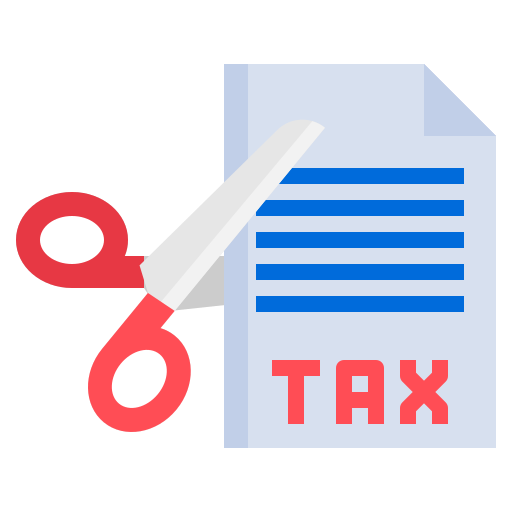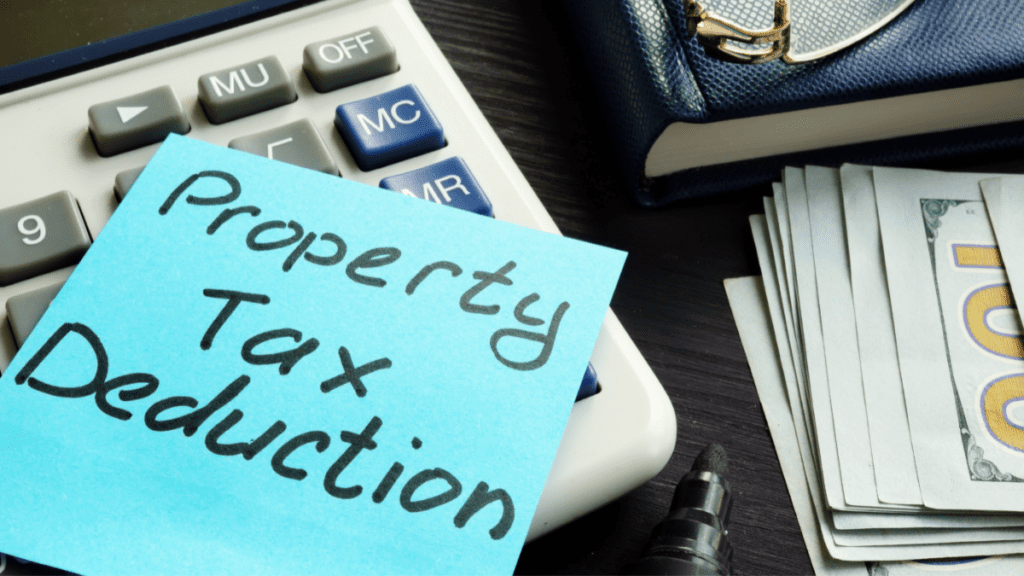Last Updated: January 2024

Rental property tax deductions offer significant financial benefits to real estate investors. By allowing rental property owners to subtract certain expenses from their taxable income, investors can significantly decrease their tax liability, to enhance the profitability of their rental properties. These deductions can encompass a wide range of ownership costs, from mortgage interest and property taxes, to maintenance expenses and insurance premiums. Understanding rental real estate taxes and available deductions can serve as a powerful tool to any real estate investments.
21 Most Common Tax Deductions for Rental Property Owners


Unlock the potential of your rental property investments with our comprehensive list of 21 tax deductions, designed to optimize your returns and strategically navigate the tax landscape.
- Mortgage Interest: This is often the biggest tax deduction for landlords. Interest paid on loans for buying or improving a rental property can be deducted from your income, reducing your tax liability.
- Depreciation: The cost of buying rental property isn’t fully deductible in the year you buy it. Instead, you deduct a portion of the cost over a number of years — this is called depreciation.
- Repair and Maintenance Costs: Expenses for repairing and maintaining your rental property are fully deductible in the year they occur. These could include costs for replacing a water heater, refrigerator, or kitchen faucet.
- Property Taxes: Local and state property taxes paid on rental properties are deductible against rental income.
- Insurance: The premiums you pay for insurance on your rental property can be deducted from your rental income.
- Travel Expenses: If you travel for the purposes of maintaining your rental property or collecting rent, these expenses can be deducted. This can include costs for driving to the rental property or even long-distance travel.
- Home Office: If you use part of your home exclusively for managing your rental properties, you may be able to deduct a portion of your home expenses as a home office deduction.
- Legal and Professional Fees: Expenses for lawyers, accountants, property management companies, real estate investment advisors, and other professionals can be deducted.
- Advertising: The costs incurred while advertising your rental property are tax-deductible.
- Utilities: If you pay for utilities at your rental property, those costs are deductible.
- Property Management Fees: If you hire a property management company to take care of your rental property, the fees they charge are tax-deductible.
- Loan Fees and Points: Certain loan origination fees, also known as points, may be deductible over the life of the loan.
- Losses from Casualties and Thefts: If your property is damaged or destroyed from a sudden event like a fire or flood, you might be able to claim a deduction for your loss.
- Association Fees: If your rental property is part of an homeowners association (HOA), you can deduct the fees you pay.
- Operating Expenses: General costs for operating your rental business, like office supplies, are deductible.
- Employee and Independent Contractor Wages: If you employ other people to help with your rental property, their wages are tax-deductible.
- Pest Control: Any costs associated with pest control services for your rental property can be deducted.
- Health and Safety Items: Expenses incurred for smoke detectors, fire extinguishers, security systems, and other safety-related items are deductible.
- Cleaning and Maintenance: If you hire a service to clean or perform maintenance on your rental property, those costs are deductible.
- Commissions: Fees that you pay to leasing agents or brokers to rent your property are deductible.
- Education and Training: Expenses for seminars, classes, instructional books, and online courses related to rental real estate investing are deductible.
How to Use Rental Property Tax Deductions (Actionable Steps)


Utilizing rental property tax deductions effectively is a key aspect of maximizing your returns as a real estate investor. Below we take a look at 8 actionable steps you can take to start utilizing deductions for your rental property.
- Understand Your Eligible Expenses: Familiarize yourself with what you can and can’t deduct. This includes both everyday expenses like repairs and property management fees, and less frequent ones like property taxes and mortgage interest.
- Maintain Accurate Records: Keep detailed and organized records of all expenses associated with your rental property. Receipts, invoices, and other documents will be crucial in case of an IRS audit.
- Separate Personal and Business Expenses: Ensure that you clearly separate your personal and business expenses. Expenses related to personal use of a rental property typically cannot be deducted.
- Hire a Tax Professional: Real estate tax laws can be complex and confusing. Hiring a tax professional who specializes in real estate investing can ensure you’re utilizing all the deductions you’re entitled to, and doing so correctly. These professionals can also propose other tax strategies such a cost segregation study or 1031 exchange.
- Report All Rental Income: Accurately report all rental income you receive. This includes not only regular rental payments, but also any other income, such as fees for late payments.
- Calculate Depreciation Correctly: Depreciation is one of the most significant tax deductions for rental properties but it’s also complex. Understanding how to correctly calculate and claim depreciation is vital.
- Consider a Home Office Deduction: If you use part of your home exclusively for managing your rental properties, you may be able to claim a home office deduction.
- Stay Updated with Tax Laws: Tax laws can change regularly, so it’s important to stay updated to make sure you’re not missing out on any potential tax breaks.
What is Not Deductible for Rental Property Taxes


As advantageous as the tax code is for real estate investors, there are also certain expenses associated with owning and managing rental properties that are not tax-deductible. Being able to distinguish apart deductible from non-deductible expenses is an important skill for investors to have for strategic tax planning.
- Land Value: While the cost of your rental property building can be depreciated over time, the portion of the property’s cost attributed to land is not deductible since land does not depreciate.
- Property Improvements (in the short term): Major improvements that extend the life of a property or increase its value (e.g., replacing a roof or room addition) are considered capital expenses and must be capitalized and depreciated over a period of years, not deducted in the year they are incurred.
- Principal Payments: While mortgage interest is deductible, the principal payments you make on a mortgage for a rental property are not.
- Travel to Find New Properties: The IRS does not allow a deduction for travel expenses incurred while you are “searching for” a new rental property. However, once a property has been purchased, travel expenses associated with the management or maintenance of that property are deductible.
- Owner-Occupied Portions of the Rental: If a portion of your property is owner-occupied, expenses must be prorated, and the personal portion of these expenses cannot be deducted.
- Losses Exceeding Income: Known as the “passive activity loss rules,” you usually can’t deduct rental real estate losses in excess of your rental income.
- Transfer Taxes on Property Sale: These transfer tax costs of buying a rental property are added to the basis of the property and are not deductible as a current expense. These are different from the taxes incurred when selling a rental property.
- Personal Expenses: Any personal expenses not directly related to the rental activity are not deductible. For example, the cost of personal living expenses, personal travel, or personal use of rental property cannot be deducted as a rental expense.
The #1 Rental Property Newsletter
Once a month, we send out an exclusive Rental Property Market Update with top stories, current mortgage rates, building products, and more. No spam and unsubscribe anytime.


Rental Property Tax Deductions FAQ
What are Rental Property Deductions?
Deductions refer to certain expenses related to owning, operating, and managing a rental property that can be subtracted from taxable income for tax purposes. Common examples include mortgage interest, property tax, operating expenses, depreciation, and repairs. These deductions can decrease the amount of income tax a property owner pays, effectively reducing the cost of owning and operating the rental property.
Is There a Limit for Rental Property Deductions?
Yes, there can be limitations on rental property deductions based on your income and usage of the property. The IRS imposes rules known as “passive activity loss rules,” which limit the amount of losses from rental activities that you can deduct in a given year. If your Modified Adjusted Gross Income (MAGI) is $100,000 or less, you can deduct up to $25,000 in rental real estate losses as long as you “actively participate” in the rental activity. Active participation typically involves making management decisions such as approving new tenants, setting rental terms, and arranging for repairs. This $25,000 allowance decreases by $0.50 for every dollar your MAGI exceeds $100,000 and disappears entirely for a MAGI above $150,000.
Pro Tip


An exception to these limitations is if you are a real estate professional (as defined by the IRS), in which you can utilize rental losses to a greater extent to offset income.
Does Owning a Rental Property Help Reduce Taxes?
Yes, owning a rental property can significantly help reduce taxes. Rental property owners can take advantage of various tax deductions such as mortgage interest, property tax, operating expenses, depreciation, and repairs. These deductions cannot reduce the actual amount of state and local property taxes owed, but can offset rental income, which in turn can reduce the overall taxable income, thus decreasing the amount of tax owed. The IRS also allows landlords to carry over excess losses to future years if their deductions are more than the rental income for a given year (within certain limitations).
What if Property Expenses are More Than Rental Income?
If your expenses for a rental property exceed your rental income for the year, you may have a net rental loss. This loss can be deducted from other income you have, potentially lowering your overall tax liability. However, there are limitations to this rule under the IRS’s Passive Activity Loss Rules. For taxpayers with a Modified Adjusted Gross Income (MAGI) below $100,000, they can deduct up to $25,000 of rental losses against other income. The deduction phases out between $100,000 and $150,000 of MAGI and disappears entirely for taxpayers with a MAGI above $150,000. If your rental losses exceed this limit, they are not lost entirely but carried forward to offset rental profits in future years.
About the Author


Ryan Nelson
I’m an investor, real estate developer, and property manager with hands-on experience in all types of real estate from single family homes up to hundreds of thousands of square feet of commercial real estate. RentalRealEstate is my mission to create the ultimate real estate investor platform for expert resources, reviews and tools. Learn more about my story.
More Rental Real Estate Tax Guides
Disclaimer: The information provided on this website does not, and is not intended to, constitute financial advice. As such, all information, content, and materials available on this site are for general informational purposes only. Please review our Editorial Standards for more info.







